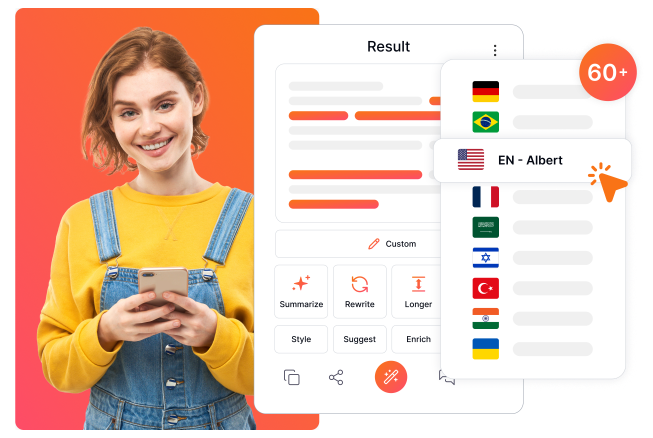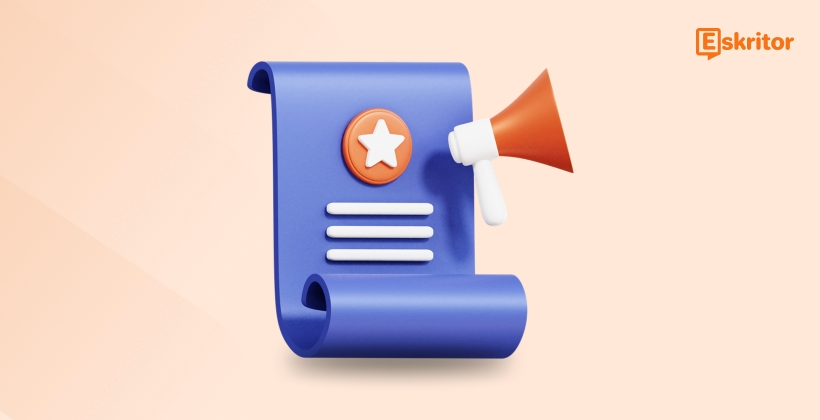AI Writing Tools vs. Human Writers – A Comparative Analysis
AI Writing Tools vs. Human Writers – A Comparative Analysis
Blog Article
Effortless Precision with AI Editing Solutions
Synthetic intelligence (AI) writing technology has evolved fast within the last decade, reshaping just how we build and talk with written content. From grammar modification tools to AI-generated books, the number of choices appear limitless. But wherever precisely is this technology heading? Let's explore the improvements, problems, and possible future of AI Editing.

How AI Publishing Technology Operates Today
At their key, AI publishing technology depends on Normal Language Control (NLP) and machine learning. These systems enable models to know, produce, and increase human language. Instruments accessible today do well at projects like:
1. Material Generation
AI has reached a point where it could make complete blog threads, social media captions, and actually media articles. Some versions can handle mimicking human publishing designs so efficiently that unique between AI- and human-written material has become increasingly difficult.
2. Grammar and Fashion Recommendation
AI-powered writing assistants don't just check always for grammar and punctuation errors; additionally they give suggestions to improve tone, quality, and syntax, creating complicated publishing accessible to a broad audience.
3. Message Examination
AI can examine the emotional tone of a bit, permitting firms to evaluate how their communications will resonate with readers. That is specially useful in advertising and client interaction.
The Current Traits in AI Publishing Engineering
Several styles are shaping the next stage of AI-powered writing instruments:
• Personalization
AI writing technology is significantly capable of tailoring content to individual preferences. Versions can conform to a user's writing model, ensuring the production feels authentic.
• Multilingual Capabilities
Many AI instruments are increasing their worldwide achieve by giving enhanced interpretation characteristics and support for multiple languages.
• Increased Research Characteristics
AI resources now possess the ability to analyze huge amounts of data and present fact-checked, well-researched writing in moments, simplifying the procedure for professionals in industries like legislation, money, and journalism.
What the Potential Supports for AI Writing Technology
1. Improved Imagination
While current AI is good at generating material, their creativity remains limited to habits within their teaching data. Future AI is not just expected to aid but to generate unique, useful operates that challenge individual imagination.
2. Smooth Cooperation
Imagine an AI that operates alongside you in real-time, completing your phrases, performing live edits, and actually brainstorming ideas. AI publishing resources may possibly shortly become co-authors, enabling creativity to movement uninterrupted.
3. Ethical and Available Style
With rising issue about plagiarism, misinformation, and prejudice, developers will work toward more clear AI instruction operations and moral implementation. Potential resources will more than likely provide more detailed citations and measures to make sure accountability.
Difficulties and Criteria
The development of AI publishing technology is not without hurdles, including:
• Moral Problems

Who possesses material created by AI? How do we assure AI-generated material is not distributing misinformation? These debates stay unresolved.
• Human-AI Harmony
May AI complement individual creativity or entirely change particular roles? Many authors and musicians be worried about their relevance in an AI-driven world.
• Convenience Split
Not absolutely all companies or regions have similar access to cutting-edge AI instruments, raising issues about the influence with this engineering on global inequality.
Adjusting the Way We Create
AI publishing engineering remains in their infancy in comparison to its potential. Whether you are a student crafting documents, a material marketer targeting specific audiences, or even a novelist seeking enthusiasm, AI instruments can continue to revolutionize the writing process. Another decade promises breakthroughs that mix individual ingenuity with device intelligence, developing a potential wherever writing is more effective, accessible, and impactful than ever before.
Report this page